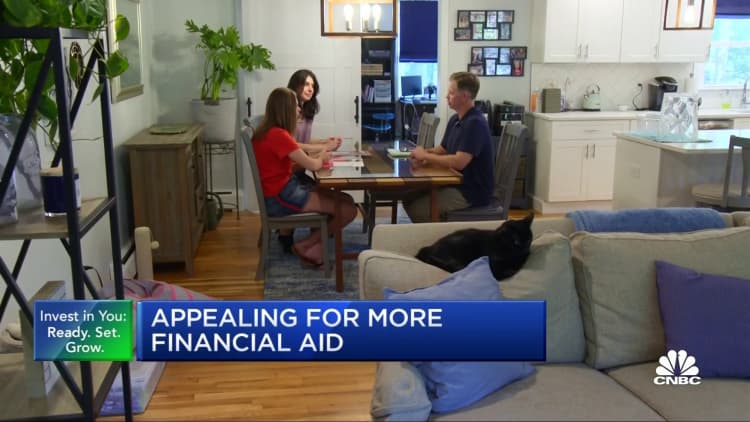Above all else, the new Free Application for Federal Student Aid was designed to improve college access.
However, problems with the rollout have left many students and their families frustrated, with fewer students applying overall. As of the last tally, nearly 4 million students have submitted the 2024-25 FAFSA form so far.
That's a fraction of the 17 million students who use the FAFSA form in ordinary years, according to the U.S. Department of Education.
More from Personal Finance:
How the affirmative action decision affects college applicants
Biden administration forgives $4.9 billion in student debt
College enrollment picks up, but student debt is a sticking point
Higher education already costs more than most families can afford, and college costs are still rising. Tuition and fees plus room and board for a four-year private college averaged $56,190 in the 2023-2024 school year; at four-year, in-state public colleges, it was $24,030, according to the College Board.
For most students and their families, the amount of financial aid offered and the breakdown between grants, scholarships, work-study opportunities and student loans are key to covering the tab.
This year, those award letters are likely to look a lot different — and those changes open the door for families to ask for more college aid, experts say.
"Every student should anticipate doing an appeal this year," said Bethany Hubert, a financial aid specialist with Going Merry by Earnest, although not every student may need to submit one.
What's changed with the new FAFSA
The simplified form now uses a new calculation called the "Student Aid Index" to estimate how much a family can afford to pay.
Under the new system, more low- and moderate-income students will have access to federal grants, but the changes will reduce eligibility for some wealthier families.
And, as part of the FAFSA simplification, families will no longer get a break for having multiple children in college at the same time, effectively eliminating the "sibling discount."
'Sibling discount' change makes a 'good case' to appeal
The new FAFSA "is going to benefit low-income students, less so for wealthier students — that's kind of the redistribution we would want, to some extent," said Menaka Hampole, assistant professor of finance at Yale School of Management.
However, as a result, some families may find their financial aid award letter does not live up to their expectations, especially if there are other siblings in college.
"There is a good case" for making an appeal, Hampole said. "The question is whether people know that they can."
Whether you are already enrolled in college or an incoming freshman, schools are often receptive to appeals for more aid; they just don't advertise it, experts say.
How to appeal for more college aid
"If the new FAFSA impacted you, for example, you no longer qualify for the sibling discount, colleges do have the ability to take that into account," Hubert said. "That is something families can reasonably ask for."
"The first step is always going to be: Reach out to the financial aid office and ask them about their process," Hubert advised. Then, start preparing your appeal.
If there are need-based issues beyond what was noted in the financial aid paperwork, such as another sibling in college or changes in your financial circumstances, that should be explained to the school and documented, if possible.

Alternatively, if the financial aid packages from other, comparable schools were better, that is also worth bringing to the school's attention in an appeal.
"When you combine that with a student showing a lot of interest, sometimes a school will be willing to adjust the financial aid package, particularly at private schools," said Eric Greenberg, president of Greenberg Educational Group, a New York-based consulting firm.
"Most people would not even think of doing that," he added, but "very often it's helpful to appeal."


